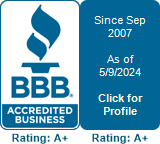
"We don't just provide services, we deliver value!"
We are seeing Clients by appointment only. If you are in a need of an in person meeting, please contact us to schedule.
We offer phone consultations in addition to in person meetings.
3 Pivotal Situations That Can Redefine Your Business Tax Commitments
In the ever-evolving business landscape, tax obligations are not set in stone. They can shift and change, often triggered by critical moments or pivotal changes within your company. These changes can significantly impact your financial strategy and require you to adapt quickly.
Some of these key turning points are unexpected, but you can plan for others in advance. This blog post outlines a few situations that may require you to restructure your business's tax commitments. With this information, you can anticipate these changes, understand their implications, and navigate them effectively.
1. Changing Your Business Structure
Each business structure has its own unique set of tax rules and liabilities. For example, if you run a limited liability company (LLC), you may be taxed differently when your company becomes a C corporation. This form of restructuring could require you to apply for new licenses and permits, adjust your payroll procedures, and modify how you file taxes.
You'll also want to assess potential changes in how shareholders or members distribute profits. This could affect the taxes you owe on any profits the business makes.
If you decide to switch your business structure from one type to another, make sure you research the new rules associated with your chosen structure and ensure that you meet all of the necessary requirements. It also helps to involve a tax expert who can advise you on the best approach.
2. Merging With or Acquiring Another Business
A merger or acquisition can be an excellent way for companies to expand and enhance their offerings. But it also requires an understanding of how taxes will be affected by the new arrangement.
When two companies merge, or when one company acquires another, they may need to adjust their tax strategies and rework how taxes are paid on profits. It could include changes to corporate income tax, payroll tax, or even capital gains taxes. This is especially true if you merge with a business that operates in a different state or country as there could be additional taxation implications to consider.
In some cases, it may also be necessary to amend existing contracts or agreements with vendors and suppliers as part of the merger or acquisition process. This has more to do with the business's financial structure, but it could also affect taxes. It could impact the way you report taxable income or deductions.
3. Entering a New Industry
If you enter a new industry or start offering new products, there may be specific tax rules and regulations you need to comply with. Each industry has its own taxation norms, such as specific deductions, credits, and compliance regulations.
For instance, a tech startup that moves into the manufacturing sector would be exposed to different tax laws and incentives. This could range from sales and use tax on equipment purchases to research and development (R&D) tax credits and special deductions for energy-efficient machinery.
In addition, your company could encounter new employment taxes if the industry requires different types of workers or working conditions. For instance, in some states, certain workers may be classified as independent contractors, which means the company doesn't have to withhold a certain amount from their wages.
There might also be state and local taxes to consider depending on the geographical location of the new industry. Some states have different rules for businesses operating in certain sectors or jurisdictions, which would then require different tax calculations.
These changes often necessitate a thorough review and, potentially, a restructuring of your business's tax strategy. Therefore, carefully research the new industry's tax landscape, and then consult the experts at Quality Bookkeeping Services Inc.to understand the implications and strategically plan to optimize tax liabilities.Quality Bookkeeping Services Inc.
Landfall Executive Suites
1213 Culbreth Drive, Suite 402
Wilmington, NC 28405
Phone: 910-452-0480
Fax: 910-452-0489












